Find Help
More Items From Ergsy search
-

Causes of a sore throat
Relevance: 100%
-
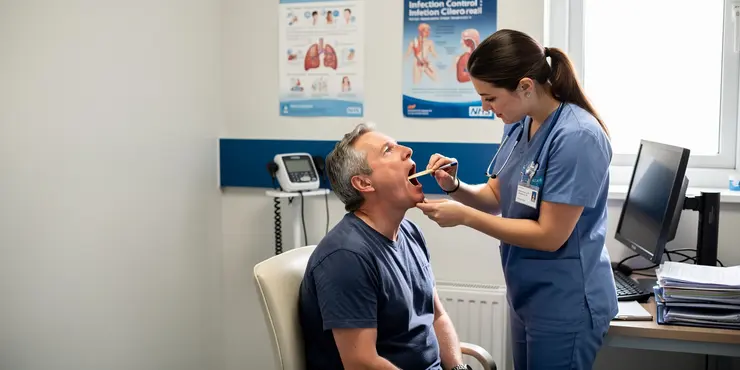
Treating a sore throat
Relevance: 100%
-

Sore throat: what should I do?
Relevance: 95%
-
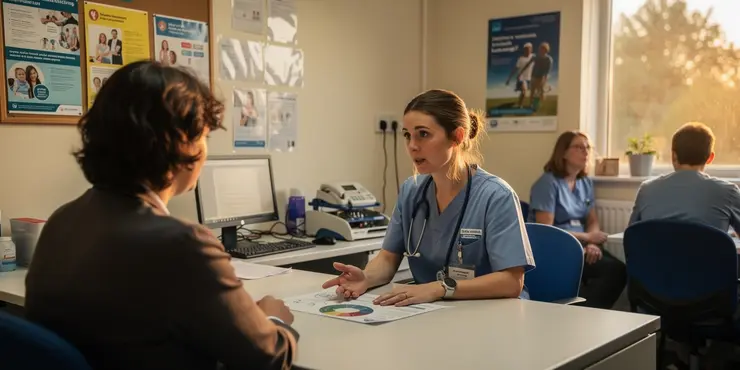
What is the best way to treat a sore throat from a cold?
Relevance: 82%
-
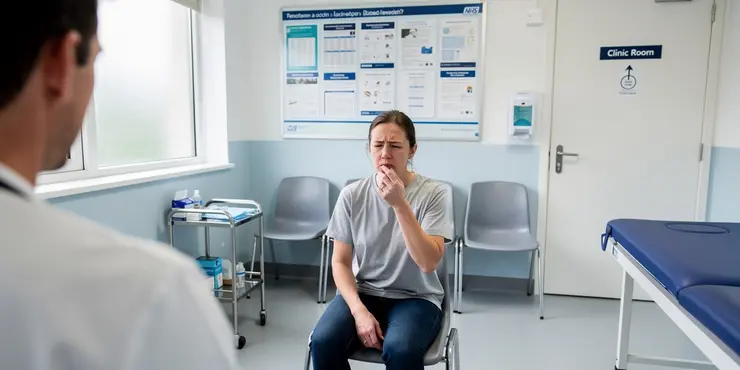
What are the symptoms of a cold sore?
Relevance: 51%
-
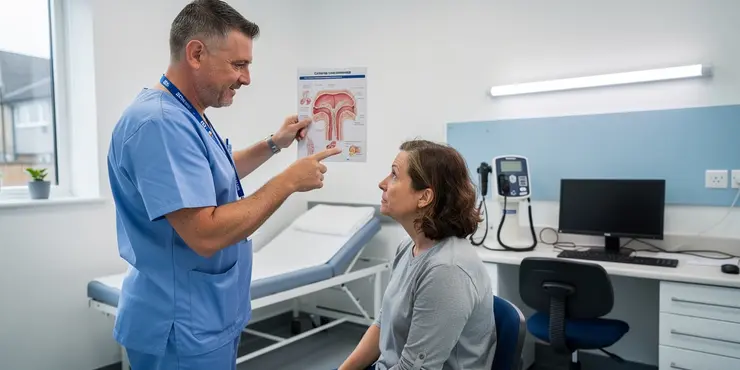
What are Cold Sores?
Relevance: 47%
-

Is there a cure for cold sores?
Relevance: 47%
-

Are cold sores contagious?
Relevance: 47%
-

What causes cold sores?
Relevance: 45%
-

How are cold sores transmitted?
Relevance: 45%
-

How long do cold sores last?
Relevance: 43%
-

What triggers a cold sore outbreak?
Relevance: 43%
-

How can I prevent cold sores?
Relevance: 43%
-

Honey 'as good as antiviral creams' for cold sores | NHS Behind the Headlines
Relevance: 37%
-

What are the common symptoms of a cold?
Relevance: 29%
-
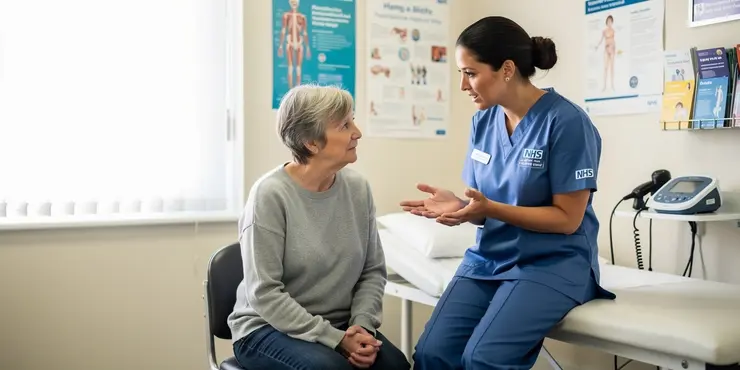
Can gonorrhoea infect areas other than the genital organs?
Relevance: 28%
-

How to Treat a Common Cold
Relevance: 27%
-
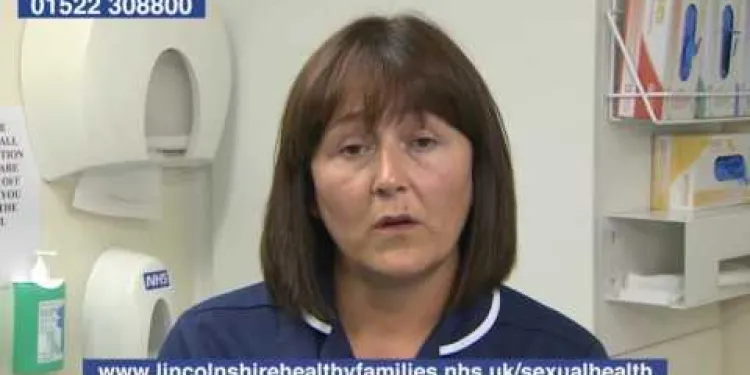
The symptoms of gonorrhoea
Relevance: 26%
-
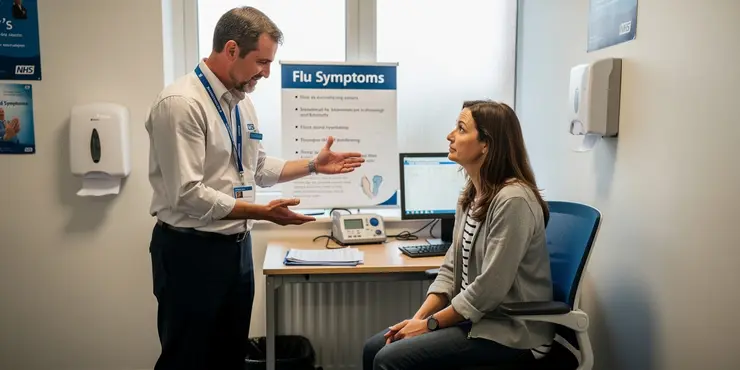
What are the symptoms of flu ?
Relevance: 26%
-

Dealing with Common Childhood Illnesses
Relevance: 25%
-
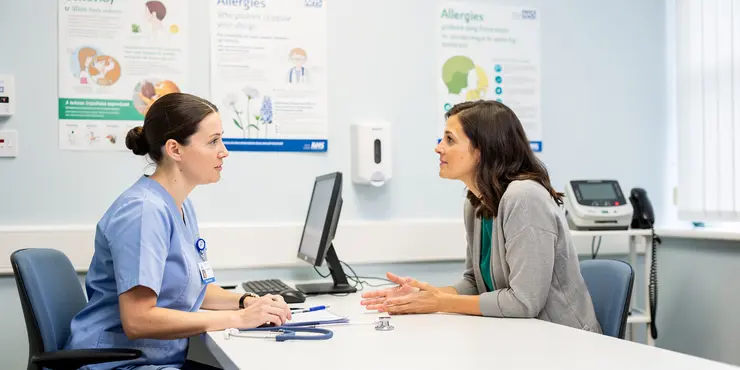
What are the common symptoms of hay fever?
Relevance: 25%
-

How to treat a cold | NHS
Relevance: 25%
-
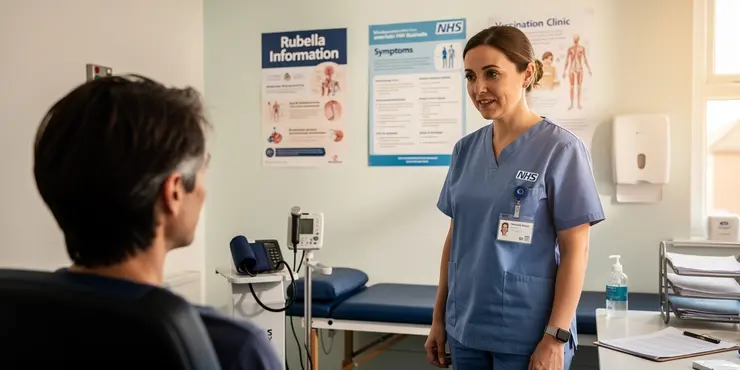
What are the symptoms of Rubella?
Relevance: 24%
-
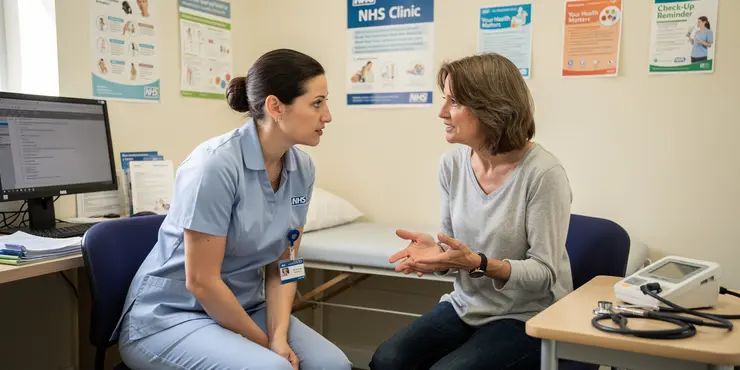
What are the symptoms of H3N2 flu?
Relevance: 23%
-

How can I treat a cold at home?
Relevance: 23%
-

Can I use a humidifier to help with my cold symptoms?
Relevance: 23%
-

How to treat glandular fever | NHS
Relevance: 23%
-

What are the symptoms of Super Flu?
Relevance: 22%
-

What are the symptoms of Nipah Virus infection?
Relevance: 21%
-

How to treat tonsillitis | NHS
Relevance: 21%
-

Head and Neck Cancer Diagnosis
Relevance: 21%
-

Help with tonsillitis
Relevance: 20%
-

How long does a common cold typically last?
Relevance: 20%
-
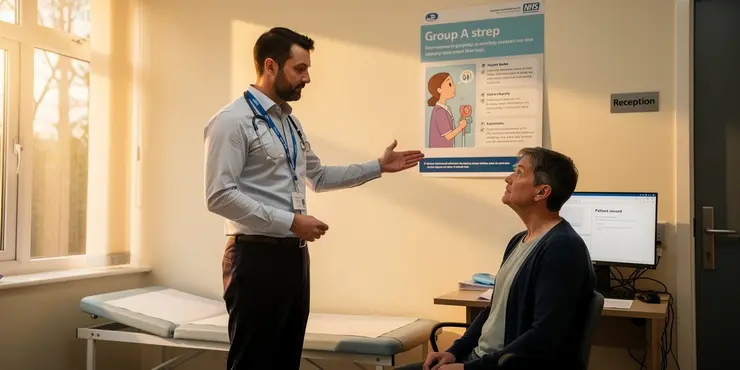
Group A strep: North East GP tells you what you need to know
Relevance: 19%
-

Is there a way to cure a cold quickly?
Relevance: 19%
-
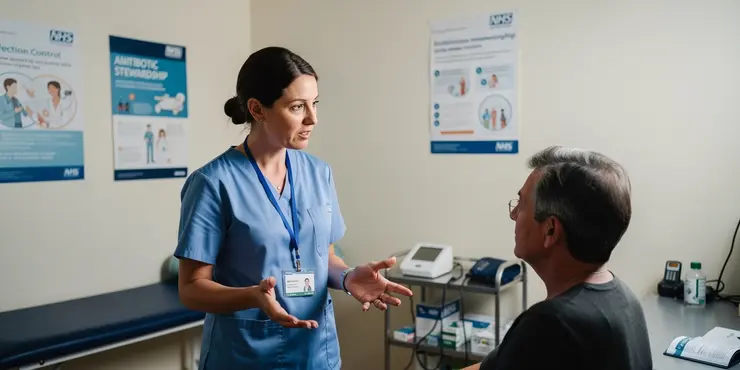
Is taking antibiotics always bad?
Relevance: 18%
-

What are the symptoms of measles?
Relevance: 18%
-

Should I see a doctor for a cold?
Relevance: 17%
-

Can impetigo spread to other parts of my body?
Relevance: 17%
-
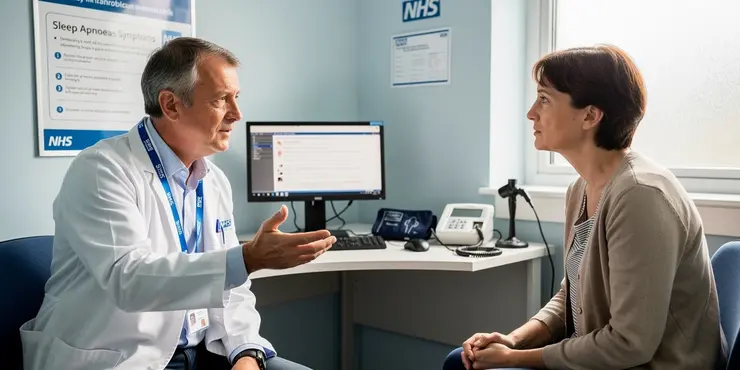
What are common symptoms of sleep apnea?
Relevance: 17%
Sore Throat: What Should I Do?
Understanding a Sore Throat
A sore throat is a common ailment characterized by pain, scratchiness, or irritation in the throat. It often worsens when you swallow. Sore throats are typically caused by viral infections, such as the common cold or flu, but they can also result from bacterial infections, allergies, dry air, or irritants like smoke.Identify Symptoms and Their Severity
Symptoms of a sore throat include pain or a scratchy sensation, difficulty swallowing, dry throat, swollen glands, and red tonsils. If your sore throat is accompanied by high fever, rash, severe headache, or difficulty breathing, it is crucial to seek medical attention promptly. In the UK, you can contact NHS 111 for advice.At-Home Remedies
For mild sore throats, several at-home treatments can alleviate discomfort. Gargling with warm salt water several times a day helps reduce swelling and irritation. Drinking warm fluids, such as herbal teas or honey and lemon, soothes the throat. Using throat lozenges or ice chips provides temporary relief. Staying hydrated by drinking plenty of water is essential to help keep the throat moist and prevent dehydration.Over-the-Counter Medications
You can find over-the-counter medications at local pharmacies like Boots or Superdrug. Paracetamol or ibuprofen can reduce pain and fever. Throat sprays and lozenges containing anaesthetics or antiseptics may provide additional relief. Be sure to follow the dosage instructions on the packaging and consult a pharmacist if you have questions about which product to choose.When to See a Doctor
If your sore throat persists for more than a week, worsens significantly, or is accompanied by worrying symptoms, it's time to consult a doctor. In the UK, you can book an appointment with your GP or visit a local NHS walk-in centre. Persistent sore throats could indicate streptococcal infection, glandular fever, or other underlying conditions that may require prescription medication or further investigation.Preventative Measures
To reduce the risk of developing a sore throat, practise good hygiene by washing your hands frequently, especially before eating or touching your face. Avoid close contact with individuals who are sick, and refrain from sharing utensils or cups. Keeping your immune system healthy by maintaining a balanced diet, exercising regularly, and getting adequate rest can also help prevent infections. By following these guidelines, you can effectively manage a sore throat and know when to seek professional help if necessary. Remember, if in doubt, NHS 111 is available to provide advice and guidance.Sore Throat: What Should I Do?
Understanding a Sore Throat
A sore throat means your throat hurts. It might feel scratchy or irritated. It usually hurts more when you swallow. Sore throats can happen because of viruses, like a cold or flu. Sometimes they come from bacteria, allergies, dry air, or smoke.Identify Symptoms and Their Severity
Signs of a sore throat include: - Pain or a scratchy feeling - Trouble swallowing - Dry throat - Swollen neck - Red tonsils If you also have a high fever, rash, bad headache, or trouble breathing, see a doctor. In the UK, you can call NHS 111 for help.At-Home Remedies
If your sore throat is not too bad, try these at-home tips: - Gargle with warm salty water a few times a day. - Drink warm drinks, like tea with honey and lemon. - Suck on throat lozenges or ice chips. - Drink lots of water to keep your throat wet.Over-the-Counter Medications
You can buy medicines at local shops like Boots or Superdrug. Paracetamol or ibuprofen helps with pain and fever. Throat sprays and lozenges with medicine can help too. Always read the label and ask a pharmacist if unsure.When to See a Doctor
Go to a doctor if your sore throat: - Lasts more than a week - Gets worse quickly - Comes with worrying signs In the UK, visit your GP or an NHS walk-in centre. A long-lasting sore throat might need special medicine.Preventative Measures
To avoid getting a sore throat: - Wash hands often - Stay away from sick people - Don’t share cups or utensils Keep healthy by eating well, exercising, and sleeping enough. This makes you less likely to get infections. These steps can help manage a sore throat. If you are unsure, NHS 111 can give advice.Frequently Asked Questions
What are the common causes of a sore throat?
Common causes of a sore throat include viral infections like the common cold or flu, bacterial infections such as strep throat, allergies, dry air, and irritants like smoke and pollution.
When should I see a doctor about my sore throat?
You should see a doctor if your sore throat is severe, lasts more than a week, is accompanied by high fever, difficulty breathing or swallowing, or if you notice white patches on your tonsils or blood in your saliva.
What over-the-counter medications can help with a sore throat?
Over-the-counter medications such as paracetamol or ibuprofen can help relieve pain and reduce inflammation. Throat lozenges and sprays may also provide temporary relief.
Are there any home remedies for a sore throat?
Yes, home remedies include drinking warm liquids like tea with honey, gargling with saltwater, sucking on ice chips, and using a humidifier to keep the air moist.
Can a sore throat be a sign of COVID-19?
Yes, a sore throat can be a symptom of COVID-19. Other common symptoms include fever, cough, and loss of taste or smell. If you suspect you may have COVID-19, follow local guidelines and get tested.
Is it safe to exercise with a sore throat?
If your sore throat is accompanied by mild symptoms like a runny nose, it's usually safe to do light exercise. However, if you have symptoms like fever, fatigue, or body aches, it's best to rest until you feel better.
How can I prevent a sore throat?
Preventive measures include practicing good hygiene such as washing your hands often, avoiding close contact with sick individuals, staying hydrated, and avoiding irritants like smoke.
Can a sore throat be a sign of something serious?
While most sore throats are not serious, some can be a sign of more serious conditions like strep throat, tonsillitis, or even throat cancer. Persistent or severe symptoms should be evaluated by a healthcare professional.
Can antibiotics help with a sore throat?
Antibiotics are only effective for bacterial infections, such as strep throat. Viral sore throats do not benefit from antibiotics. It's important to have a proper diagnosis before taking antibiotics.
How long does a sore throat usually last?
A sore throat caused by a viral infection typically lasts 5 to 7 days. If it lasts longer, it may be due to a bacterial infection or other causes, and medical evaluation may be necessary.
Can I still go to work if I have a sore throat?
If your sore throat is mild and not accompanied by other symptoms like fever, you may still go to work. However, if you are contagious or do not feel well enough, it's best to rest and avoid spreading illness to others.
What foods or drinks should I avoid with a sore throat?
Avoid foods and drinks that are acidic, spicy, or rough in texture as they can further irritate a sore throat. Stick to soothing foods and beverages like broth, tea, and soft foods.
Will drinking water help a sore throat?
Yes, staying hydrated helps keep your throat moist and can soothe irritation. Drink plenty of water and other fluids like herbal teas to help ease the discomfort.
Can allergies cause a sore throat?
Yes, allergies can cause a sore throat, especially if they lead to postnasal drip, which can irritate the throat. Treating the underlying allergy can help alleviate the sore throat.
Can smoking cause a sore throat?
Yes, smoking is a common irritant that can cause a sore throat. The smoke and chemicals in cigarettes can irritate the throat lining, leading to discomfort and inflammation.
What makes your throat hurt?
Here are some things that can make your throat hurt:
- Having a cold
- The flu
- Allergies
- Breathing in dry air
- Smoking
If reading is hard, try using:
- A reading ruler to help focus on one line
- An app that reads text out loud
- Colored overlays to make words clearer
A sore throat can happen for many reasons. You might get it from colds or flu, which are caused by viruses. Sometimes, bacteria can make your throat sore too, like in strep throat. Allergies, dry air, smoke, and dirty air can also hurt your throat.
When should I see a doctor about my sore throat?
If you have a sore throat, here is when you should see a doctor:
- Your throat hurts for more than a week.
- You have a high fever (hot body).
- It is very hard to swallow or breathe.
- Your voice is gone for more than a week.
- You see red spots or white patches in your throat.
- You get a rash or your neck feels big.
If you feel worried, always tell an adult or see a doctor. You can also ask someone you trust for help if you find it hard to talk to the doctor.
Go to the doctor if your sore throat is really bad, lasts more than one week, or if you have a high fever. Also, see a doctor if it is hard to breathe or swallow, if you see white spots in your throat, or if there is blood in your spit.
If you need help reading, you can ask someone you trust to read with you or use a reading tool that reads text out loud.
What medicines can you buy from the store to help with a sore throat?
If your throat hurts, you can get some medicines from the store. They don’t need a prescription from the doctor.
Here are some that can help:
- Lozenges: These are like candy that you suck on. They can make your throat feel better.
- Sprays: These can be sprayed into your throat to help with pain.
- Pain relievers: Medicines like acetaminophen (Tylenol) or ibuprofen (Advil) can help reduce the pain.
Tips:
- Drink warm drinks, like tea with honey.
- Rest your voice by talking less.
You can buy medicine like paracetamol or ibuprofen from the shop. These help with pain and swelling. Throat sweets and sprays can also help for a little while.
Can I help my sore throat at home?
If your throat hurts, here are some simple things you can try:
- Drink warm drinks like tea with honey.
- Gargle with warm salty water.
- Suck on a throat lozenge or a hard candy.
- Keep your throat moist by drinking water.
- Rest your voice by talking less.
If it doesn't get better, ask an adult to help you see a doctor.
Yes, there are simple things you can do at home to feel better. You can drink warm drinks like tea with honey. You can gargle with salty water. You can suck on ice chips. You can use a humidifier to keep the air nice and moist.
Can a sore throat mean you have COVID-19?
A sore throat can happen if you have a cold or the flu. It can also be a sign of COVID-19.
If your throat hurts, you might want to:
- Tell an adult how you feel.
- Drink warm drinks like tea or soup.
- Use throat lozenges or honey to help soothe your throat.
- Rest to get better.
If you feel very sick, ask an adult to call a doctor.
It is important to wash your hands and wear a mask to help stop COVID-19 from spreading.
A sore throat can mean you have COVID-19. Other signs are feeling hot (fever), coughing, and not being able to taste or smell things. If you think you might have COVID-19, follow the rules where you live and get a test.
Can I exercise if I have a sore throat?
If your throat hurts, it might be a good idea to rest. Try not to exercise.
When you feel better, you can move again.
If you’re not sure, ask someone you trust, like a doctor.
You can also try tools like:
- Drinking warm drinks.
- Getting lots of sleep.
- Using a cool cloth on your head.
If you have a sore throat and a runny nose, it's okay to do gentle exercise. But if you have a fever, feel very tired, or your body hurts, you should rest until you're well again.
How can I stop a sore throat?
A sore throat is when your throat feels hurt. Here are some ways to stop it:
- Wash your hands often to stay clean.
- Drink lots of water and warm drinks.
- Avoid close contact with people who are sick.
- Use a tissue when you sneeze or cough. If you don’t have one, cough into your elbow.
- Keep your home dust-free and clean.
- Don’t shout or talk loudly.
You can use pictures or videos to help remember these tips. Reading together with someone can make it easier too!
To stay healthy, you can:
- Wash your hands often.
- Stay away from people who are sick.
- Drink lots of water.
- Avoid smoky places.
Tools that can help:
- Use a hand sanitizer when you can't wash your hands.
- Carry a water bottle to remember to drink water.
- Wear a mask if you are around smoke.
Is a sore throat something to worry about?
A sore throat can make your throat hurt.
Sometimes, it's just a small problem like a cold.
But, it can be a sign of a bigger problem too.
If your throat hurts a lot or for a long time, see a doctor.
Tools to help you:
- Ask someone for help to read information.
- Use apps that read text out loud.
Most sore throats are not serious. But sometimes, they can be a sign of something more serious. This could be an infection called strep throat, tonsillitis, or even throat cancer. If your sore throat is very bad or doesn't go away, you should see a doctor.
Can medicine help with a sore throat?
A sore throat can hurt and make it hard to swallow.
Medicine called antibiotics can help if the sore throat is because of germs.
If your sore throat is from a virus, antibiotics will not help. Viruses are tiny germs that need different medicine.
It is always good to ask a doctor or a nurse if you need antibiotics.
Some things to help a sore throat are:
- Drinking warm drinks, like tea or soup
- Resting your voice and not talking too much
- Eating soft foods that are easy to swallow
Remember, it is important to talk to a doctor or a nurse if your throat really hurts or if you are worried.
Antibiotics are medicines that can help you get better if you have an illness caused by bacteria, like strep throat. But antibiotics do not work if your sore throat is caused by a virus. It is important for a doctor to find out what is causing your sore throat before you take antibiotics.
If reading is hard, it can help to:
- Read with someone else who can explain things.
- Take your time and read slowly.
- Use a tool that reads text out loud.
How many days does a sore throat last?
A sore throat from a virus usually goes away in 5 to 7 days. If it lasts longer, it might be from bacteria or something else, and you should see a doctor.
Can I go to work if my throat hurts?
If your throat hurts, it might not be a good idea to go to work. It could mean you are sick.
Here are some tips:
- Rest at home until you feel better.
- Tell your boss you are not feeling well.
- Drink plenty of water and juice.
- Wash your hands often to stop others from getting sick.
If your throat hurts a little and you don't have other problems like a fever, you can still go to work. But if you can make others sick or you feel too sick, it's best to stay home, rest, and not spread your germs.
What foods and drinks should I stay away from if my throat hurts?
When your throat hurts, some foods and drinks can make it worse. Stay away from foods and drinks that are sour, spicy, or scratchy. These can make your throat feel more painful.
Try eating and drinking things that are gentle and comforting. Good choices are soup, tea, and soft foods that are easy to swallow.
Can drinking water make my sore throat feel better?
Drinking water can help if your throat hurts. It keeps your throat wet and makes it feel less dry. Try to sip water during the day.
You can also try warm drinks, like tea with honey, to soothe your throat.
If your throat still hurts after trying these things, you can ask a grown-up or a doctor for more help.
Yes, drinking water helps keep your throat wet and can make it feel better. Drink lots of water and other drinks like herbal teas to help your throat feel good.
Can allergies make your throat hurt?
Yes, allergies can make your throat feel sore. This happens because your body reacts to things like dust, pollen, or pet hair.
Here are some things that might help:
- Drink warm water or tea.
- Use a humidifier to keep the air moist.
- Stay away from things that cause your allergies.
- Ask an adult to help you find medicine for allergies.
Yes, allergies can make your throat hurt. This can happen if you have something called postnasal drip. That means mucus drips down the back of your throat and can make it sore. If you take care of the allergy, your throat might feel better.
Does smoking make your throat hurt?
If you smoke, your throat might feel sore. Smoking can hurt your throat. If you stop smoking, your throat might feel better.
Here are some things that can help:
- Drink some water.
- Rest your voice.
- Try to stop smoking.
If the pain continues, talk to a doctor or nurse. They can help you feel better.
Yes, smoking can make your throat sore. The smoke and stuff in cigarettes can bother your throat and make it hurt and swell up.
Useful Links
This website offers general information and is not a substitute for professional advice.
Always seek guidance from qualified professionals.
If you have any medical concerns or need urgent help, contact a healthcare professional or emergency services immediately.
Some of this content was generated with AI assistance. We’ve done our best to keep it accurate, helpful, and human-friendly.
- Ergsy carfully checks the information in the videos we provide here.
- Videos shown by Youtube after a video has completed, have NOT been reviewed by ERGSY.
- To view, click the arrow in centre of video.
- Most of the videos you find here will have subtitles and/or closed captions available.
- You may need to turn these on, and choose your preferred language.
- Go to the video you'd like to watch.
- If closed captions (CC) are available, settings will be visible on the bottom right of the video player.
- To turn on Captions, click settings .
- To turn off Captions, click settings again.
More Items From Ergsy search
-

Causes of a sore throat
Relevance: 100%
-

Treating a sore throat
Relevance: 100%
-

Sore throat: what should I do?
Relevance: 95%
-

What is the best way to treat a sore throat from a cold?
Relevance: 82%
-

What are the symptoms of a cold sore?
Relevance: 51%
-

What are Cold Sores?
Relevance: 47%
-

Is there a cure for cold sores?
Relevance: 47%
-

Are cold sores contagious?
Relevance: 47%
-

What causes cold sores?
Relevance: 45%
-

How are cold sores transmitted?
Relevance: 45%
-

How long do cold sores last?
Relevance: 43%
-

What triggers a cold sore outbreak?
Relevance: 43%
-

How can I prevent cold sores?
Relevance: 43%
-

Honey 'as good as antiviral creams' for cold sores | NHS Behind the Headlines
Relevance: 37%
-

What are the common symptoms of a cold?
Relevance: 29%
-

Can gonorrhoea infect areas other than the genital organs?
Relevance: 28%
-

How to Treat a Common Cold
Relevance: 27%
-

The symptoms of gonorrhoea
Relevance: 26%
-

What are the symptoms of flu ?
Relevance: 26%
-

Dealing with Common Childhood Illnesses
Relevance: 25%
-

What are the common symptoms of hay fever?
Relevance: 25%
-

How to treat a cold | NHS
Relevance: 25%
-

What are the symptoms of Rubella?
Relevance: 24%
-

What are the symptoms of H3N2 flu?
Relevance: 23%
-

How can I treat a cold at home?
Relevance: 23%
-

Can I use a humidifier to help with my cold symptoms?
Relevance: 23%
-

How to treat glandular fever | NHS
Relevance: 23%
-

What are the symptoms of Super Flu?
Relevance: 22%
-

What are the symptoms of Nipah Virus infection?
Relevance: 21%
-

How to treat tonsillitis | NHS
Relevance: 21%
-

Head and Neck Cancer Diagnosis
Relevance: 21%
-

Help with tonsillitis
Relevance: 20%
-

How long does a common cold typically last?
Relevance: 20%
-

Group A strep: North East GP tells you what you need to know
Relevance: 19%
-

Is there a way to cure a cold quickly?
Relevance: 19%
-

Is taking antibiotics always bad?
Relevance: 18%
-

What are the symptoms of measles?
Relevance: 18%
-

Should I see a doctor for a cold?
Relevance: 17%
-

Can impetigo spread to other parts of my body?
Relevance: 17%
-

What are common symptoms of sleep apnea?
Relevance: 17%


